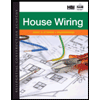
Divide and show the steps of Problem Example 9.3 in chapter 9 from the textbook into the format of “Given”, “Find” and “Solution” sections.
Answer to Problem 27P
The mass of water stored after 5 minutes in tank (a) is 600 kg and in tank (b) is 300 kg, and the time taken to fill tank (a) and tank (b) of volume
Explanation of Solution
Given:
Volume of each tank
Density of water
Rate at which fluid enters tank is
Find:
The mass of water stored after 5 minutes in each tanks and also find the time taken to fill the tanks of volume
Solution:
Refer figure 1. Water enters the tank (a) at rate of
Formula for the relationship of conservation of mass is,
Consider the expression for rate of accumulation or depletion of fluid in the control volume is,
Substitute equation (2) in equation (1).
In figure 1, there is no disposal of water from the tank through any opening. Therefore, the rate at which the fluid leaves the control volume is zero. Therefore, equation (3) becomes,
As the water is filled inside the control volume at rate of
Formula to determine how much mass each tank can hold is,
Formula to determine the time taken to fill the tank (a) is,
Convert the unit of time taken from seconds to minutes.
Refer to Figure 2. Water enters the tank (b) at rate of
From equation (3),
As the water is filled inside the tank at rate of
Formula to determine the time taken to fill the tank (b) is,
Convert the unit of time taken from seconds to minutes.
Conclusion:
Hence, the mass of water stored after 5 minutes in tank (a) is 600 kg and in tank (b) is 300 kg, and the time taken to fill tank (a) and tank (b) of volume
Want to see more full solutions like this?
Chapter 4 Solutions
Engineering Fundamentals: An Introduction to Engineering (MindTap Course List)
- What are the advantages and disadvanatges of accelerating a construction schedule by stacking trades on top of each other?arrow_forwardDetermine forces in members BC, GF and CG and nature of forces 9 m D 4 m C 4m 500 F 4 kN 6 kN 4 m 3 m B3 G E Assignment-2 Aarrow_forwardFind forces in all members of the truss shown in Fig. Also find reactions at supports. 12 kN 20 kN ΙΟΧΟΙΟΙ 2 m 2 m 2 m 3 m C G E 4 m B Determine forces in members BC, GF and CG and nature of forces 9 m D 4 m C 4 m F 4 kN 6 kN 4 m 3 m B3 C E Assignment-2arrow_forward
- Part 3: Problem-Solving. Solve the following problems. Show all calculations. 1. A retaining wall 5.80m high supports soil that has the following properties: Unit weight = 17.3 kN/m³ Angle of internal friction = 26 deg. Cohesion = 14.5 kPa a) Calculate the normal pressure acting at the back of the wall assuming no tensile crack occurs in the soil. b) Find the location of the tensile crack measured from the surface of horizontal backfill. c) Determine the active pressure acting on the wall in tensile crack occurs in the soil. 2. The soil material is supported by a retaining wall to a height of 6m. The unit weight of the soil is 16 kN/m³ and the angle of internal friction is 29 deg. Assume the soil is cohesionless. a) Determine the earth pressure on the wall. b) Find the total active pressure if surcharge of 14 kPa is applied on the surface of horizontal backfill. c) Locate the position of the total pressure from the bottom.arrow_forwardQuestion 3 (20 points): The traffic volume on a 2-lane highway is 1600 veh/hr in each direction Page 3 of 6 with a density of 20 veh/mi. A large dump truck enters the traffic stream from an adjacent construction site at 20 mph and carries on this way for 2 miles before turning off to the dump site. Because flow is so high in the opposite direction, no one can pass the truck. As a result, traffic back up behind the truck at four times the density (i.e., 4x20 = 80 veh/mi) at a volume of 1000 veh/hr. How many vehicles get caught in the traffic congestion before the truck exits the highway?arrow_forwardHow can construction project managers find a balance between speeding up schedules and the risks of making more mistakes and needing rework, especially when using methods like fast tracking?arrow_forward
- What are the total earned work hours at completion for the column forms?arrow_forward6000 units have been installed to date with 9,000 units to install. Labor costs are $23,300.00 to date. What is the unit cost for labor to date?arrow_forwardThe base rate for labor is $15/hr. The labor burden is 35% and 3% for small tools for the labor. There are 1000 units to install. Records indicate that trade workers can install 10 units per hour, per trade worker. The owners need 15% overhead and profit to pay bills, pay interest on loan and provide some profit to the partners. What is the minimum bid assuming no risk avoidance factor?arrow_forward
 Engineering Fundamentals: An Introduction to Engi...Civil EngineeringISBN:9781305084766Author:Saeed MoaveniPublisher:Cengage Learning
Engineering Fundamentals: An Introduction to Engi...Civil EngineeringISBN:9781305084766Author:Saeed MoaveniPublisher:Cengage Learning Residential Construction Academy: House Wiring (M...Civil EngineeringISBN:9781285852225Author:Gregory W FletcherPublisher:Cengage Learning
Residential Construction Academy: House Wiring (M...Civil EngineeringISBN:9781285852225Author:Gregory W FletcherPublisher:Cengage Learning

